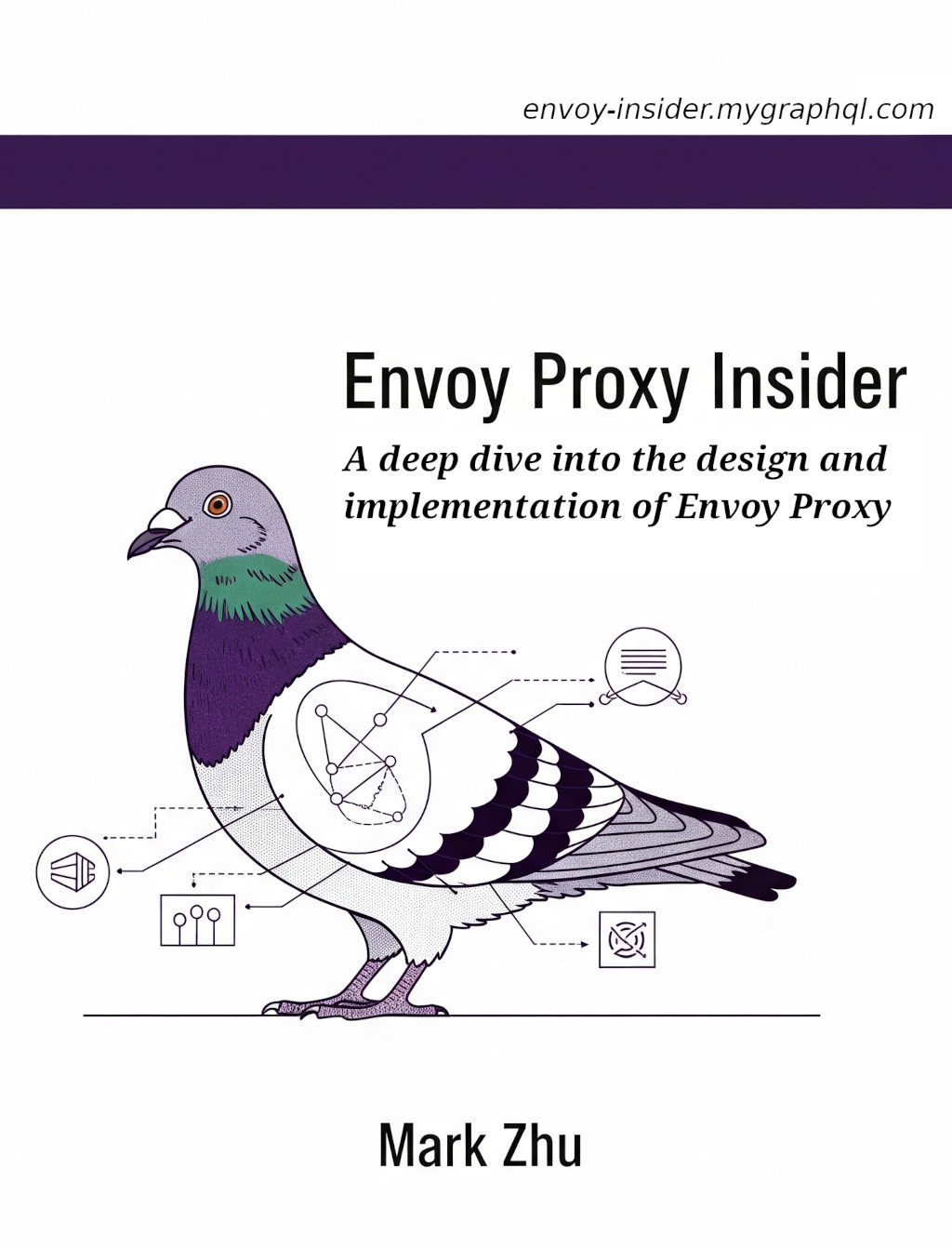
This article introduces my new open-source book - “Envoy Proxy Insider”. It’s a book that dives deep into the mechanisms and implementations of Envoy Proxy. Much of its content comes from my previous book “Istio & Envoy Insider”, from which I’ve extracted the Envoy part and reorganized it into a standalone book. The purpose is to help readers focus solely on Envoy without distraction from Istio. Some content is irrelevant or inapplicable to Istio, so it makes sense to split them. Moving forward, “Istio & Envoy Insider” will only update Istio-related content, while this new book will carry all updates related to Envoy.
Some readers may wonder why split Envoy into a separate book. Recently, I’ve noticed that Envoy is used far beyond Istio. It has become a standalone and widely adopted programmable proxy, used across various cloud-native architectures, AI gateways, edge computing, and many non-Istio projects. It’s now infrastructure for infrastructures. That’s why I believe a dedicated book is necessary to help non-Istio readers understand its design and implementation.
Book Overview
This book is titled “Envoy Insider”. It’s currently a work in progress and in draft stage.
What This Book Is
It includes: source code analysis, deconstruction of core Envoy principles, and system design insights. However, this is not a traditional “Deep Dive into XYZ Source Code” book. I’ve done my best to minimize direct code snippets. Reading source code is essential, but the in-book experience is often poor. Instead, I use code navigation diagrams to show implementation flow and avoid overwhelming readers with fragmented code.
I aim to explore:
- The architecture and underlying details of Envoy
- Why Envoy is the way it is
- The truth behind magical configurations: Linux + Envoy
- How traffic is intercepted and routed to Envoy via Linux netfilter
The book reflects my thoughts and notes after investigating and using Istio. I’ve debugged various features and performance issues in Istio/Envoy, and studied some of their code.
While researching Istio, I found a wealth of valuable information online. But most are either user-oriented without implementation insight, or insightful but lacking structure and continuity.
What This Book Is Not
This book is not a user guide. It doesn’t teach you how to use Envoy or explain its features from a beginner’s perspective. There are already excellent tutorials, books, and docs out there.
🤷 : Yet, another Envoy User Guide?
🙅 : No!
Target Audience
This book focuses on Envoy’s design and implementation. It assumes readers are already familiar with Envoy usage and are curious about how it works internally.
Book Access
About the Author
My name is Mark Zhu, a balding middle-aged programmer. I’m not an Envoy expert—at most, a contributor to the Envoy Docs. Not even an employee of a tech giant.
Why write a book with limited expertise? Because of this saying:
You don’t have to be great to start, but you have to start to be great.
Blog: https://blog.mygraphql.com/
For updates, I’ve also created a synced WeChat public account: Mark的滿紙方糖言
Contribute
If you’re interested in contributing, feel free to reach out. This book isn’t for resume building—I don’t even have the credentials. And this kind of “non-TL;DR” book is inherently niche.
Dedication 💞
First, to my dear parents, for showing me how to live a happy
and productive life. To my dear wife and our amazing kid – thanks for all your love and patience.
Copyleft Notice
Whether text or images, please credit the original source if you share or modify.
Feedback
As an open-source interactive book, your feedback is very important. If you spot errors or have suggestions, feel free to file an issue here:
https://github.com/labilezhu/envoy-insider-en/issues
Chinese version
There is an Chinese version: https://envoy-insider.mygraphql.com
